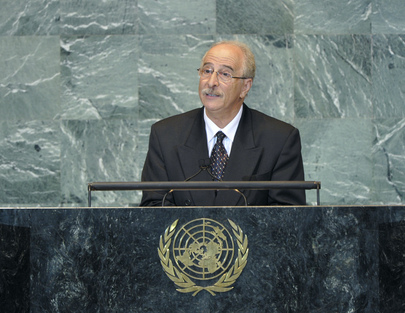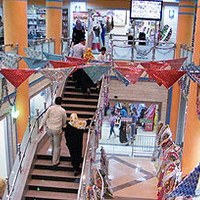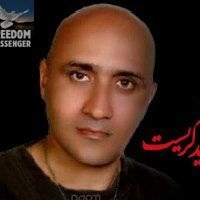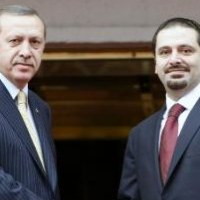![]()
Mon, Sept 26, 2011 | UN TV
FM Mohamed Mouldi Kefi Addresses the General Debate of the 66th Session of the General Assembly
Address by His Excellency Mr. Mohamed Mouldi Kefi, Minister for Foreign Affairs of Tunisia at the General debate of the 66th Session of the General Assembly of the United Nations (New York, 21-24 and 26-30 September 2011).
Tunisia, General Debate, 66th Session
Allocution of Tunisia
at the sixty sixth session of the United Nations General Assembly
delivered
by
H.E Mr. Mohamed Mouldi EL KEFI, Minister of Foreign Affairs
September 26th, 2011
Mr. President,
Mr. Secretary General,
Excellencies,
Ladies and Gentlemen,I would like, first, to extend to you and through you, your brotherly country, Qatar, my sincere congratulations for your designation as President of the 66th session of the General Assembly of the United Nations. And let me observe in this regard that we are deeply confident you will actively contribute to the success of its works.
I would also like to express, to Mr. Joseph Deiss, my thanks and consideration for his valuable endeavors, as President of the preceding session of the General Assembly, and for his contribution to dialogue and consultation with all the components of the international community.
I wish to take up this opportunity to renew my congratulations to the Secretary General, Mr. Banki Moon, following his reelection for a third mandate. I would recall in this respect his tireless efforts to develop our Organization’s performance and efficiency as well as his endeavors to raise them to our peoples’ expectations in terms of security, peace and development. We are entirely at his disposal to assist him in contributing to the success of the plan to be announced in the coming weeks as to his take on the priorities of the Organization’s action in the next five years.
I would like also, to welcome, on behalf of Tunisia, the adhesion of the brotherly State of Southern Sudan to the United Nations Organization, wishing to the new state prosperity and progress and to its leaders great success in their noble mission.
Mr. President,
Allow me, at the outset of my speech, to salute, from this podium, the martyrs and youths of Tunisia’s peaceful revolution, a revolution for freedom and dignity that offered to the world an Arab Spring. This historical event actually infused a new hope into the conscience of Human kind, that yearns for Justice, and democracy, and holds high the values of freedom and Human Rights.
This spontaneous revolution, free from political or ideological framing and without any foreign support, has, indeed, succeeded in putting an end to one of the most obnoxious dictatorships in the region and in unveiling its practices as well as those of similar regimes, whose lust for power have, indeed, blocked all the political perspectives, stifled freedom of expression and dashed the hope of youths for a better future, self accomplishment and an effective participation in the economic and social life.
What happened in Tunisia is but the natural outgrowth of decade-lasting- repression and is at the same time, the expression of the aspiration of its people to live in dignity and freedom. This historical event embodies a benchmark that has straightened up our county’s evolutionary process and helped it regain its natural position among the nations and forces attached to the common human values of freedom, democracy, tolerance, equal opportunities and the respect of Human Rights in all their dimensions and scope.
Mr. President,
Having freed itself from all the restrictions that hindered its political, economic, social and cultural progress, Tunisia is today at a turning point of its history and on the threshold of a new stage. It yearns for the establishment of a genuine democracy, founded on strong guarantees that consecrate people’s sovereignty and the possibility for them to enjoy their right and to determine their destiny. This political system should also be based on a genuine pluralism, a peaceful alternation on power to achieve the objectives of the glorious revolution and be faithful to the memories of our martyrs.
In line with this glorious revolution, the provisional government exerted every effort to preserve all the mechanisms to ensure the security of the country and the continuity of the state and the public services. It also worked on safeguarding the population’s interests with all its categories and did its utmost to make of this period one of a smooth and well ordained transition toward the consecration of democratic practices.
Hence, a “The Higher Authority for the Achievement of the Revolution Objectives, Political Reform and Transition to Democracy” was established. It includes the various political trends and sensitivities as well as representatives from the civil society and the national organizations. It is entrusted with the mission of charting a road map to help it succeed in this transitional period within a consensual and harmonious atmosphere.
The meetings of this Authority along with the consultations it had with all the national parties resulted in a balanced working strategy from the legal and practical perspectives. This strategy will map Tunisia’s political future and fulfill the aspirations of its people for a democratic, sound and quiet transition.
The implementation of this strategy was illustrated by the provisional President’s decision to suspend the Constitution, to dissolve the two chambers of Parliament to momentarily organize the public authority, made up of an acting head of state and a provisional government. This government, whose competence and integrity are common knowledge, is in charge of running current affairs until a Constituent Assembly is elected. The latter will draft a new constitution and set forth the legal framework for the upcoming transitional period, consecrating popular legitimacy.
Important strides have thus been made in terms of the preparation for the election of the Constituent Assembly, on October 23rd 2011. To this effect, we will spare no effort to enable the Tunisian people elect its representatives in a popular, free, pluralistic, transparent and honest fashion.
No doubt, the establishment of an independent higher Authority to monitor the electoral process in its different phases, while endowing it with the legal foundations and financial support, strongly testify to the sound national approach and clairvoyance of the involved political parties. These insist on securing all the conditions for the independence and good performance of this process.
It would be interesting to recall in this respect, that for the first time in Tunisia’s history, and following the consensus reached by the national political partners, our country has stood out by adopting the principle of mandatory parity. This will enable us to take advantage of Tunisian society’s potential; men and women alike, and to preserve the well deserved position of Tunisian woman within the national social fabric.
The elections day is due in few weeks. We cannot help but express our satisfaction that the Higher Electoral Authority has actually implemented the working agenda set for the electoral process, and secured the required conditions for its success. We are utterly confident that these elections will be a success by all standards, and that success will be clearly confirmed by national as well international observers, who will attend this momentous political event.
Mr. President,
In addition to the progress underscored in the political field, the provisional government is pursuing its efforts to proceed with the comprehensive reform involving the various sectors and fields. The protection of Human Rights and civil liberties stand on top of the Government’s priorities, which is trying to make of these principles a tangible reality in accordance with the objectives set by the popular revolution.
This found expression in the enactment of a general amnesty to the benefit of all the political prisoners under the former regime together with the dissolution of the political police, the adhesion of Tunisia to the Rome Statute of the International Criminal Court, its ratification of the additional optional protocols of the international Convention on Civil and political Rights. Similarly, we have ratified the International Convention on the protection of all persons from Enforced Disappearance and withdrawn all the reservations related to UN Convention on the Suppression of all Forms of Segregation against Women, which objective is the consecration and the consolidation of gender equality.
A number of international organizations and organisms dealing with Human Rights have; by the same token, opened offices in Tunis, among them are The UN High Commission for Human Rights, along with the United Nations High Commission for Refugees.
Within the same context, the reform of the Judiciary system and its upgrading with regards to files related to combating corruption or tracking those charged with death and torture crimes as well as the extortion of Tunisian People’s money has equally captured the attention of the provisional Government. This government was actually assisted by two national independent committees set up to investigate corruption cases and unveil the truth on the violations and transgressions committed against the Tunisian people while the revolution was taking place. This, besides the reactivation of the relevant international instruments such as the 2003 UN Convention on Combating corruption and Bribery, ratified by Tunisia, which endeavored to adjust it to the requirements of its domestic legislation.
Mr. President,
Tunisia, which deeply believes in universal values of solidarity, justice and international cooperation, strongly appeals, on this occasion, to the international community, including governments, world and regional organizations along with civil society activists, to lend their support for the repatriation of its people’s extorted assets by the former president and his family members and in laws, taking into account that the Tunisian people have the right to it and is in great need for it, particularly at this very special juncture of time. It is actually a very sensitive period fraught with tremendous economic and social challenges.
Tunisia, also, invites all countries that received extradition requests of persons convicted of crimes, be it among those mentioned above or others, to respond positively to these legitimate requests to allow for the trial of those who were indicted for crimes that caused damage to the Tunisian people. The trial will be fair and the defense’s rights are guaranteed according the Tunisian legislation and international conventions.
Even though the Tunisian requests have been met with approval from the part of a number of friendly and brotherly countries, for which we are thankfuL However, we would like all the countries that we contacted to this effect to show more efficiency and celerity in responding to the Tunisian requests in observance of the noble principles of international cooperation and solidarity, that consecrate the values of equity and justice.
Tunisia is looking forward to the positive and prompt response to its legitimate demands from the international community with all its components. At the same time, it is sensitizing the public opinion to the historical responsibility of the international community to show its support to the Tunisian people in this seminal phase of their history in such a way to secure their rights and those of the generations to come.
Mr. President,
Tunisia is employing every possible effort to back up all the economic actors, domestically and internationally and face the challenges resulting from the post revolutionary thorny situation and the negative repercussions that it entailed on our national economy. This is not to mention the human and economic consequences generated by the crisis in brotherly Libya, and its immediate impact in further complicating the situation and hampering the government’s task.
In spite of all that, a new strategy has been put in motion, taking into account the new juncture and the challenges that it brought about. Overcoming this delicate situation is deemed as a fundamental popular request for the achievement of a lasting prosperity to the country and reinforces the transitional democratic process in a resolved fashion.
Within this context, the interest was focused on living up to two fundamental structural challenges. The first one is to provide jobs and to bring down the unemployment rate, while the second one is to reduce regional social and economic disparity.
No doubt Tunisia is endowed with assets to achieve its goals and to carry out the democratic transition and the economic and social development. These are founded on a strong popular will and a large social homogeneity and a solid determination to succeed in this democratic experience as well as economic, social and geographical outstanding comparative advantages. Tunisia remains, nevertheless, in an urgent need of continuous support and effective solidarity from the international community to succeed in the democratic transition endeavors and to avoid the economic recession that often accompanies popular revolutions.
I would like to seize this opportunity to convey my special thanks to the G8 and the international and regional financial institutions which did not refrain from showing their support to this transitional process and to Tunisia’s economic revival within Deauville partnership strategy. I, equally wish to thank, the UN, regional groupings and the brotherly and friendly countries for their precious contribution, whether in taking part to the success of the democratic transition or in reducing the impact of the economic crisis in Tunisia with its social repercussions.
I would, also, like to pay tribute to the seminal efforts made by the various international parties, states and organizations alike, for their assistance to sort out the crisis resulting from the arrival of thousands of refugees on our territory, following the events that occurred in the brotherly Libya.
Mr. President,
Tunisia’s integration in its regional environment is one of the top priorities of its foreign policy. It stems from our determination to develop our country’s political ties with all the brotherly and friendly countries, the regional and international organizations as well as the enlargement of the cooperation scope on the basis of mutual respect, good neighbourhood and common interests.
In this respect, Tunisia attaches a special attention to its relations with its immediate neighbours, the brotherly countries of the Arab Maghreb. It expresses the wish to resume coordination between all the member states of the Union in order to initiate a new phase leading to decisions likely to foster the integration through solid institutions, mainly in development and economic fields, for the benefit of all the peoples of our region.
Nurturing the hope to reach a final solution for the Western Sahara problem, which has always been a stumbling block for Maghreb integration, Tunisia relies on international efforts and the parties to the conflict to resume negotiations in order to bring about a final political solution in conformity with international legality.
Talking about our Maghreb environment, I would like to pay tribute to the brotherly Libyan people and to reiterate the warm congratulations of the Tunisian people for his victorious revolution, which represents a crucial historical change in the region that would lay the groundwork for the emergence of a democratic political system in Libya. These developments will have a deep positive impact on Tunisian-Libyan relations as well as on the edification process of the Arab Maghreb Union.
We have no doubt about the capacity of the brotherly Libya, thanks to the efforts of its citizens, their high sense of patriotism and attachment to their vital national interests, to overcome this delicate phase and regain its vigour and position. I avail myself of this occasion to assert the determination of the Government and people of Tunisia to do their utmost to support our Libyan brothers and help them achieve their legitimate aspirations towards democracy, development and prosperity.
Tunisia urges the international community to support the Libyan people in this delicate phase and provide the needed political support for their legal representative, the Transitional National Council, in order to achieve the assigned goals within the full respect of Libya’s sovereignty, territorial integrity and the protection of its achievements.
Mr. President,
Being an Arab and Islamic country that gave Africa its current name, Tunisia is proud and deeply attached to its various origins. Apart from being open to the European states for geographical and historical reasons, it is a country that has always welcomed millions of visitors worldwide.
Tunisia will remain faithful to this sense of belonging and will actively contribute to the development, not only of the regional political groupings to which it belongs, but also those with which it has established economic and development partnerships.
In this regard, Tunisia will spare no effort to support the Arab common action in order to achieve economic complementarily and enhance Arab unity. We firmly believe that the common interests and destiny are ingredients for the success of any economic or political grouping. Hence, we are poised to move forward with the Common Arab market programme through the consolidation of intra-Arab commercial exchanges. We also believe that our unity can be achieved only through common and daring political decisions and a relative consensus regarding the issues at the center of the League of Arab States’ concerns, on top of which is the Palestinian problem.
Tunisia reiterates its firm position supporting the brotherly Palestinian people in all phases of his legitimate struggle and calls for a just, lasting and comprehensive solution to put an end to his suffering, thus enable him to rec~ver his legitimate rights and establish his independent state on the national territories with East Jerusalem as its capital.
Tunisia strongly supports the Palestinian bid for United Nations recognition as expressed by the President of the Palestinian Authority, Mr Mahmoud Abbas, last week before the General Assembly, and calls on the International Community to support the legitimate Palestinian bid for a full membership in the United Nations.
In this respect, Tunisia strongly condemns the illegal embargo that Israel is imposing on the Gaza Strip and its recent military aggression, which left many innocent casualties. It equally vigorously condemns Israel’s constant violation of international legality and fundamental references to the Peace operation as well as its settlement policy imposing the fait accompli in a bid to obliterate the Arabo-islamic identity of the city of Jerusalem.
While congratulating the brotherly Egyptian people for the success of the revolution of his youths and legitimate aspirations for freedom and dignity, Tunisia expresses its hope that peace and stability be restored in the brotherly countries Syria and Yemen in order to meet the aspirations of their respective people for democracy, freedom, and reforms. Meanwhile Tunisia asserts its refusal of any attempt to exploit the situation in these two brotherly countries to jeopardise their security and stability.
Tunisia reiterates its call to end the Israeli occupation of the Syrian Golan Heights and the remainder of the occupied Lebanese territories in conformity with international legality in order to give all the peoples of the region the possibility to enjoy peace and security and seek a better future. It also reiterates its wish that the efforts being deployed lead to the promotion of peace and stability in Iraq and Somalia within the framework of unity and national consensus.
Mr. President,
Being equally an African country, Tunisia extends a particular attention to its belonging to this continent and its belief in the importance of integration in its geographic environment and the enlargement of areas of cooperation and solidarity with the brotherly African countries. Striving to enhance this tendency and reiterating its respect for the principles and objectives of the African Union, Tunisia stresses its constant support for any initiative aiming at promoting development in the continent and protecting its resources in an environment of peace and stability.
Tunisia wishes that the emergence of the state of South Sudan will be a positive factor fostering peace and security in the region and paving the way for the establishment of brotherly and partnership relations between the North and the South of Sudan on the basis of cooperation and good neighbourhood ties.
Given the strategic importance of its relations with the European Union, Tunisia will further enhance these relations in order to establish a closely-knit partnership based on mutual respect and common interests. On this occasion, Tunisia nurtures the hope that the European Union and all the friendly European countries will be among the first supporters of the Tunisian people to politically, financially and economically implement the transitional phase with success.
Tunisia will tighten cooperation ties with the countries and the peoples of the Mediterranean within the Union for the Mediterranean hoping that it will lead to the implementation of tangible development and economic projects to support the Southern Mediterranean countries, particularly those experiencing the ‘Arab Spring”, and settle the problems and reduce the negative aspects such as illegal migration.
Our country attaches also a particular importance to fostering its relations with Australia, Latin American and Asian countries as well as with the regional economic groupings in these two continents within the framework of an open and balanced foreign policy approach aiming at establishing a multifaceted partnership.
Apart from diversifying its economic partners, particularly in North America, Tunisia will foster cooperation with the said continents’ emerging countries such as China, Korea, India and Brazil and take advantage of the existing economic and commercial potential as well as important cooperation mechanisms.
Mr. President,
Since its adherence to the United Nations Organisation following its independence in 1956, Tunisia has been an active member that has championed just causes and contributed to the international efforts aiming at fostering development and fighting poverty, underdevelopment, diseases, wars and conflicts.
Tunisia will strive to retrieve its position within the United Nations in a way that reflects the awareness and aspirations of its people as well as its long standing history replete with positive contributions to the international relations. While stressing our commitment to be bound by the principles of international law and international legality, we call for initiating the process of reforming the United Nations, mainly through the enlargement of the Council’s membership in order to ensure a permanent representation for the African continent.
Tunisia equally stresses the need to enhance the role of the General Assembly of the United Nations by urging member states to respect its resolutions and recommendations.
Mr. President,
It is obvious that political issues, crises, wars and conflicts represent the major concern of the United Nations. Despite the importance of these issues, we should not neglect international economic and development questions which, if addressed successfully, will enable us to eradicate the causes of conflicts and wars within and between countries.
In this regard, Tunisia believes that achieving a just and sustainable development requires, apart frorn the internal reforms, an enhanced cooperation and solidarity at the international level.
Tunisia also considers commercial exchanges as a crucial instrument for the rapprochement between countries and peoples. It avails itself of this occasion to reiterate its call to enlarge cooperation, enhance the flow of investment towards the countries of the South and foster triangular cooperation as well as cooperation in the various development fields such as agriculture, food security, water, infrastructure, educational systems, health care, fight against contagious diseases, the promotion of communication technologies, economic know-how and the environment.
Tunisia also calls for the consolidation of partnership between the North and the South in conformity with the joint international commitments likely to pave the way for a more even-handed and balanced world.
Tunisia hopes that the United Nations Conference on Sustainable Development (Rio+20) achieves concrete results guaranteeing the implementation of the internationally agreed upon commitments, identify the necessary mechanisms to meet the challenges and facilitate the establishment and fostering of an international partnership in the economic, social and environmental fields.
Tunisia also wishes that the high level meeting on desertification, land degradation and drought within the framework of sustainable development and the fight against poverty leads to the development of an international cooperation and partnership to fight these phenomena as well as their repercussions.
It expresses the same wish that the member states manage during their forthcoming annual meeting, to be held in Jordan at the end of November 2011, to reach, on the basis of the Framework Agreement on Climate Change and “the Kyoto Protocol”, comprehensive, balanced and ambitious results, particularly as regards the transfer of technology and the reactivation of the “Copenhagen Green Climate Fund”.
Mr. President,
Being conscious of the pioneering role that the youths of Tunisia played to implement his glorious revolution, the Provisional Government welcomed the holding of the high level meeting of the general Assembly on Youth that convened in July 2011, and its adoption, during the conference, of a document containing important recommendations reflecting the aspiration of young people, throughout the world, to a central position in the concerns of the international community.
As youths’ unemployment phenomenon has become universal, representing one of the greatest challenges threatening the world’s security and stability, we can only observe that our call to all concerned parties, including individual states, financial organizations and institutions as well as the private sector, to set up a world strategy to fight youths’ unemployment in observance of the recommendations of UN Summit on Youths.
Mr. President,
Tunisia is actually going through a delicate phase of its history and is strongly determined to meet the enormous challenges. She is equally relying on its proper potentials and on cooperation with its brothers, friends and partners.
And even though the country’s priorities are the organization, next October, of the National Constituent Assembly’s elections, the continuous endeavours of the provisional government to create jobs for the unemployed youths, and addressing the economy, Tunisia reiterates, from this podium, its commitment toward its regional and international responsibilities as a peace-loving-state, a nation attached to international legality and believing in the values and principles of the United Nations. It is determined to play a key and an active part in the management of international relations in line with the aspirations of its people, who initiated a peaceful revolution to regain his rights his, freedom, and dignity.
Thank you for your kind attention.



 RSS
RSS











FM Mohamed Mouldi Kefi Addresses the General Debate of the 66th Session of the General Assembly | Mi http://t.co/Y49qrSqR
FM Mohamed Mouldi Kefi Addresses the General Debate of the 66th Session of the General Assembly | Mi http://t.co/Y49qrSqR